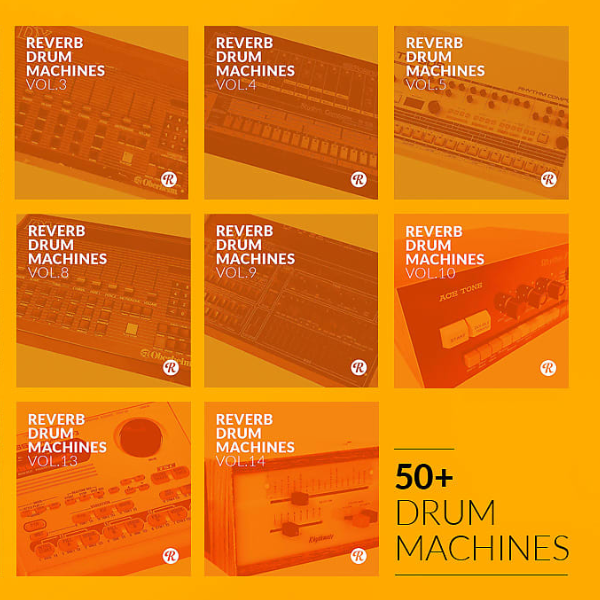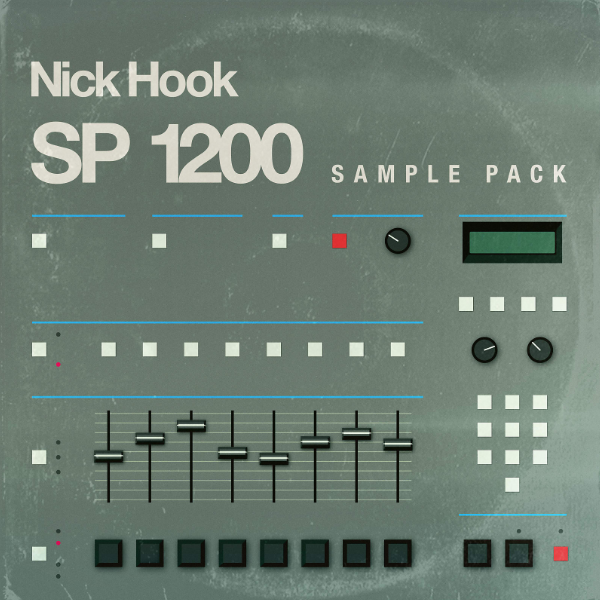Sample packs—downloadable audio packs full of royalty-free grooves, drum loops, percussion hits, synth stabs, and field recordings—have become essential for many beatmakers. Just over a decade ago, most samples of this quality had to be acquired through VST software updates. You could even purchase CD-Roms or USB Flash Drives full of high-def samples from music instrument stores.
But not all sample packs are created equal. Some well advertised packs are full of lackluster material or even worse, sounds that are duplicated, renamed and repackaged from another pack.
So it begs the question: What makes a good sample pack? What makes one worth buying over the other? As an experienced beatmaker, I can say that purchasing samples through gear companies is a good place to start. Many brands sell sample packs curated by producers and quality certified by the brand itself.
Daniel Steele is a musician, producer, recording engineer, and sound designer who makes sample packs with MSX Audio, a frequent collaborator on MPC Expansions by Akai Professional. Steele talked about what makes their packs stand out.
"So, we are very different, because we just make what we like," he says. "If everyone else is doing trap, specific trap sounds like 'Trap Melodies,' or 'Moody Trap Melodies' or 'Lo-Fi this' we're like yeah, that's cool but right now we're on Turkish rock music, and that's what we're diggin' right now. And we will just decide like, 'Yo let's put out a Balkan orchestra sounding kind of thing' and that's what we'll do, because that's what we're passionate about at the moment."
In regards to industry competition, he says, "Music is not a competition thing for me. It's more of an emotional [form of] communication. ... I don't think everybody is supposed to be at the top of the charts. There wouldn't be a 'top of the charts' if everybody was there. I think part of the problem with the music industry is that everyone is trying to achieve the same goals and go to the same places."
Daniel feels one of the keys to success at MSX Audio is that their production staff is full of well-trained musicians. "All of our guys are proficient in either two or more instruments," he says. "The reality is as sample pack creators, we can create environments for niches and pockets of people to have emotional experiences in. Because sampling laws are so strict—so jacked-up, honestly—we have the opportunity to create new inspirational textures and vibes. I feel that in 20 to 30 years people are going to start talking about sample pack creators the same way they talk about [vinyl] records."
A lot of packs are sold on the idea of sharing access to more expensive analog sound processors, synthesizers and production hardware that are inaccessible to most producers. Here at Reverb, we put out a free pack that features samples recorded from rare and noteworthy drum machines. We also put out a free pack featuring samples curated by Nick Hook in his E-Mu SP-1200.
Modular-based Techno producer, educator and sound designer Trovarsi knows this appeal. She is the founder of SoCal Synth Society and known for her performances, workshops, and YouTube videos. Through her journey with modular synthesis, she collaborated with Noise Engineering on a mega sample pack made entirely with the company's eurorack modules.
"That sample pack has 350 samples in it," she says. "I did it in a few different sessions, just to get different results." She adds, "I also try to keep in mind that I like to use sample packs too, so it was like keeping a structure of 'If I didn't have all of this stuff and I wanted to buy this pack, what would I want in the pack?' I tried to make them different from traditional sounds because you can find so many packs already doing that."
Going the modular route is only one way to approach making samples, Trovarsi says, "there's so many ways to make a sample pack without having much gear. Record the field, then run it through an effect rack in Ableton. You can record almost anything really." She continues, "start tweaking knobs in your DAW so you can capture and create other textures. Do a delay into a delay and a reverb, put a modulated filter on there with some LFO automation, make it crazy, make it interesting. You don't necessarily need a ton of gear to make creative textured loops. It just might take a little longer than instantly going to a modular and turning a knob."
Sample pack curation is a viable career for many. Ill Brown, a veteran producer and recording engineer, was motivated to curate sample packs because he wanted different sounds than what he was often hearing in hip-hop production.
"Back in the day, we didn't have drum sounds of our own," he says. "Going through vinyl, finding breaks, finding open drums, chopping and EQing them, making our own folders… coming up in hip-hop, good drums was like gold. It was scarce—a lot of people had the same stuff."
"That evolved to me hearing modern hip-hop and hearing a lot of stuff sounding the same, and being like 'How could I be innovative and make some new-sounding stuff, new-sounding snares, new-sounding kicks, new-sounding percussion?'" he says. "Whatever it may be to spark creativity."
Brown is a frequent curator on Sounds.com, a subscription-based sample library run by Native Instruments. This prominent placement of Brown's samples along with many other notable curators has garnered attention from mainstream producers.
Brown often hears his drum loops on popular rap records. "When I hear my stuff, I hear it in a lot of stuff both underground and mainstream. It's like when I hear it and it's creative and I can tell somebody chopped it, I'm like 'That's dope how you did that,' but when I hear [a drum loop] and it's like 'Wow, you just grabbed a loop, then you grabbed another loop' and it's nothing really fresh about that. You're really just window shopping for sounds at that point," he says.
Brown has been very vocal on social media about what he calls the darkside of sample pack curation. He is a proponent of creativity in hip-hop production: He argues in favor of splicing, remixing, and rearranging a loop over taking full loops and mashing it up with others.
However, he expressed an overall positive view about being sampled by renowned producers. "I know my stuff is good enough for the top level because it's being used in these compositions, in these tracks that are getting major spins, major notoriety," he explains. "When you pay for the kit, my job is done. I hope I could inspire you, if you happen to just like the loop that much, then [sure] rock out."
Regardless of the debate, royalty-free sampling has become more common practice at the professional level. Producer and sound designer Decap understands this trend: Not only is he a Billboard Top 10 platinum-certified producer, he's also the creator of the Drums That Knock sample pack series, which has resulted in millions of downloads. His samples are being used on Grammy Award-winning songs with high regard from producers all over the world.
Decap says, "I've found that going the royalty-free route, it definitely means that a lot of my stuff will be in the Top 10, the Top 40." He adds, "I'm going to hear my loops all over Spotify and I actually don't mind it, because I realized that somebody paid for that pack."
Decap calls himself a student of the boom-bap hip-hop era, but he also feels that the new era is worth celebrating. He says, "What I like about the game right now is creatives are taking liberty to make the music they feel. I don't believe in any kind of limitation, I just believe in creativity and ultimately I believe in good music. … I prefer to serve the community with stuff they could use and feel good about and increase the creativity of the community."
Drums That Knock Vol. 1 went viral in 2016. With nine volumes to date, Decap's drums can be heard on tracks from Madonna to Beyoncé to Eminem to Bad Bunny.
Decap says, "I didn't have any intention to make a drum kit that would go viral or a drum kit that other people would use for other genres. I made it literally just for myself. To be completely honest, when I make a Drums That Knock kit I make it with myself in mind. I spend a lot of time making it and I just make sure that every sound is something that I would use."
Drums That Knock is not just a sample pack series, it's what you should expect when purchasing that pack. Decap's packs are full of drum samples that are designed to punch through the mix.
"I play around with different analog processing for every kit," Decap says. "It's just a natural feel because my production goes through evolutions and also I continue to change and improve as a sound designer. So like my production, as a producer my production changes, and as a sound designer I feel that mirrors that."
Plenty of good sample packs are available, albeit at times for a cost. But the cost you're paying is for royalty-free samples made by like-minded producers and musicians who know what sounds good chopped up and replayed out of a sampler. The best sample packs on the market today are made even better by taking your own approach to the material.
About the author: Fess Grandiose is a producer, Eurorack educator, and one of Reverb's esteemed video hosts. Check the links below to see more of his work on Reverb.


